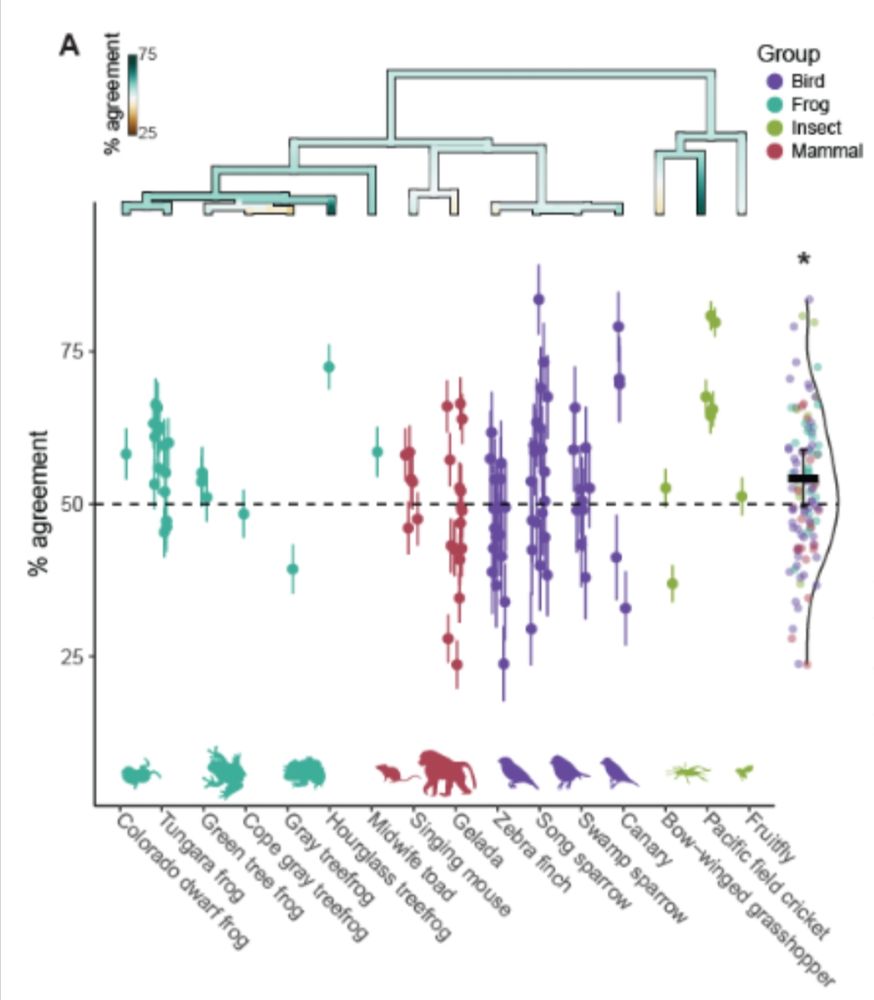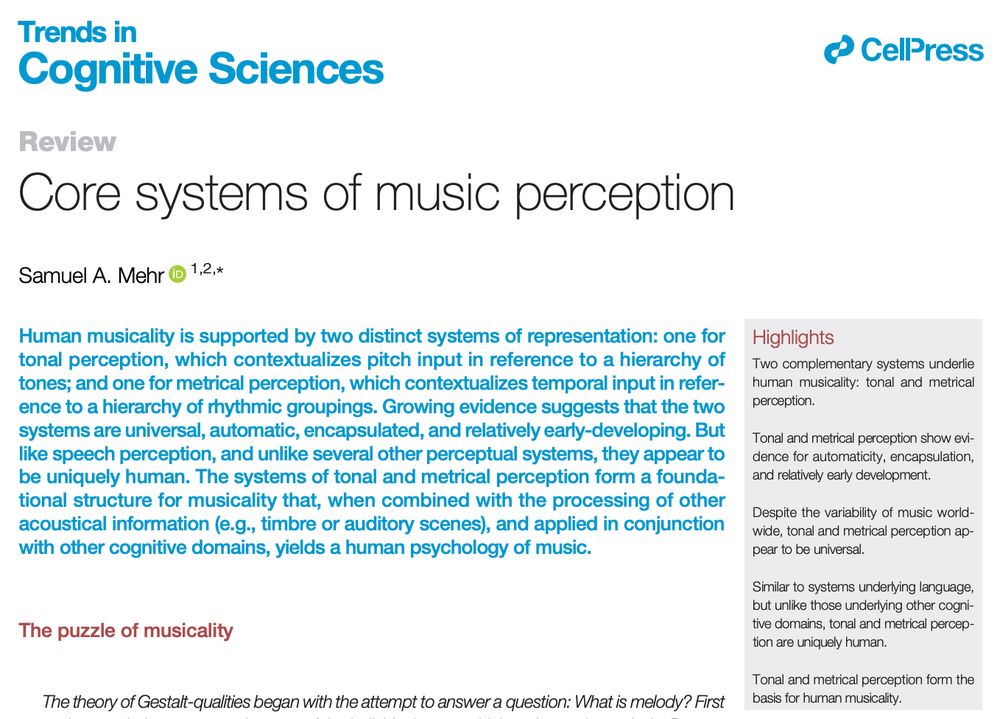The Music Lab
@themusiclab.org
330 followers
370 following
6 posts
We're a cognitive science lab at the University of Auckland and the Yale Child Study Center.
Participate in our research at themusiclab.org!
Posts
Media
Videos
Starter Packs
Reposted by The Music Lab
Reposted by The Music Lab
Reposted by The Music Lab
samuel mehr
@mehr.nz
· Jun 6

We asked NPR listeners what they sing to their babies. Hear some of our favorites
After a new study confirmed singing to babies can help boost their health and happiness, we asked our listeners and readers what they sing to their little ones. Listen to some of our favorites.
www.npr.org
Reposted by The Music Lab
The Music Lab
@themusiclab.org
· Jan 29









![The Expanded Natural History of Song Discography, aglobal corpus of vocal music
[author list]
AbstractA comprehensive cognitive science requires broad sampling of human behavior to justify general inferencesabout the mind. For example, the field of psycholinguistics relies on a rich history of comparative study, withmany available resources that systematically document many languages. Surprisingly, despite a longstandinginterest in questions of universality and diversity, the psychology of music has few such resources. Here,we report theExpanded Natural History of Song Discography, an open-access corpus of vocal music (n=1007 song excerpts), with accompanying metadata detailing each song’s region of origin, language (of 413languages represented here), and one of 10 behavioral contexts (e.g., work, storytelling, mourning, lullaby,dance). The corpus is designed to sample both broadly, with a large cross-section of societies and languages;and deeply, with many songs representing three well-studied language families (Atlantic-Congo, Austronesian,and Indo-European). This design facilitates direct comparison of musical and vocal features across cultures,principled approaches to sampling stimuli for experiments, and evaluation of models of the cultural evolutionof song. In this paper we describe the corpus and provide two proofs of concept, demonstrating its utility. Weshow that (1) the acoustical forms of songs are predictive of their behavioral contexts, including in previouslyunstudied contexts (e.g., children’s play songs); and (2) similarities in acoustic content of songs across culturesare predictable, in part, by the relatedness of those cultures.](https://cdn.bsky.app/img/feed_thumbnail/plain/did:plc:v6qwaqo24zfrq5fj7ceibxqk/bafkreih7a2u3rxrlera5bc5n3yk3lhde3zkvq37gnk7axyblgtnjothrhy@jpeg)


